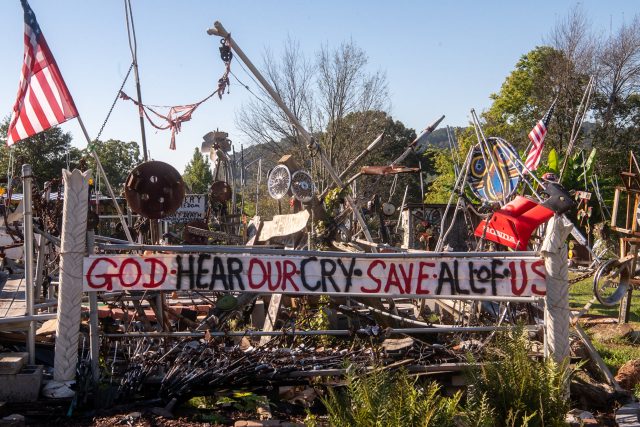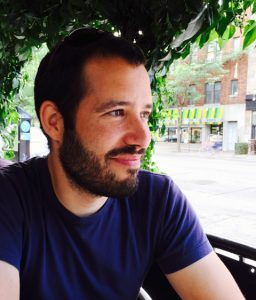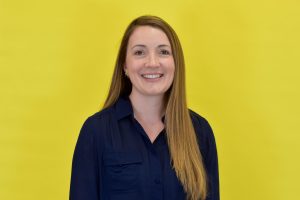
By Ryan Michaels
The Birmingham Times
When he first arrived at the home of Birmingham artist Joe Minter in October 2020 to take digital photos for a project, Eric Courchesne, geospatial services manager for the University of Alabama (UA) geography department, had no idea how long he’d be there.
Courchesne ended up spending the entire day in an experience he described as “eye-opening.”
Minter, a longtime resident of Woodland Park, a neighborhood within Birmingham’s North Titusville community, has built numerous sculptures on land next to his home. The sculptures, which reference African slavery in the United States, the struggles from the Civil Rights era of the 1960s, and contemporary issues concerning race, make up what Minter calls his “African Village in America.”

Courchesne said Souls Grown Deep, a nonprofit that seeks to promote Black artists from the South, approached him with an idea for preserving Minter’s work. Upon seeing the work, it was “obvious” what UA needed to do.
“Everything that’s going on in this country today still reflects these conversations,” Courchesne said. “The fact that we’re circling back to voting rights again in the early 21st century is just an obvious example of why [Minter’s] work is still relevant and important today.”
UA recently completed the first phase of its project to digitally preserve Minter’s work. The effort to digitally maintain the African Village and promote Minter’s work will involve taking numerous high-resolution photographs of the environment and combining them into one giant composite that viewers can virtually explore.
This digital environment will be available online, as well as in an exhibition at UA’s Paul R. Jones Museum in Tuscaloosa, Alabama. While Courchesne hopes to have Minter’s website live by the fall of 2022, UA has multiple years of work left to do on the project.
So far, UA has performed drone photography above the site, but moving forward they intend to take photographs on the grounds of the space from lots of angles to form a digital, three-dimensional space.
On that day a year ago, when Courchesne and his team arrived at Minter’s home to take pictures, Courchesne realized that the scope of the project needed to be broadened.
“My wife is an American historian,” he said. “I’m well aware of a lot of his context, but to hear it from [Minter’s] perspective was eye opening, so it became apparent to me in that conversation that, while we were there to collect the work, we needed to expand the project to collect [Minter] and that experience I had.”
Since then, another UA team was sent out to record Minter’s words, personality, and look, in addition to his work.
“What I wanted was to make it so that everybody who wants to can have the experience that I had, walking through the sculpture garden with [Minter], hearing [him] talk, and just sort of absorbing some of his wisdom,” Courchesne said.

Rachel Stephens, an associate professor of art history at UA, heads the team that conducted the interviews with Minter. Given her field, Stephens and her team are trying to document Minter and his work from an art history perspective by amassing of footage of Minter during the interviews. Currently, they are collecting nuts-and-bolts data about his work to get the online portion of the project up.
Though Minter is not well known in the art history world, “I think his work deserves a place there because it’s the story of this self-taught artist who came through the Civil Rights [era] in Birmingham, [and] has taken it upon himself to use his experience and his artistic prowess to create this incredible installation of work that tells the story of his life and his vision,” Stephens said.
Minter’s “African Village in America” is located at 931 Nassau Ave. SW, Birmingham, Alabama 35211 facebook.com/joeminterafricanvillage



